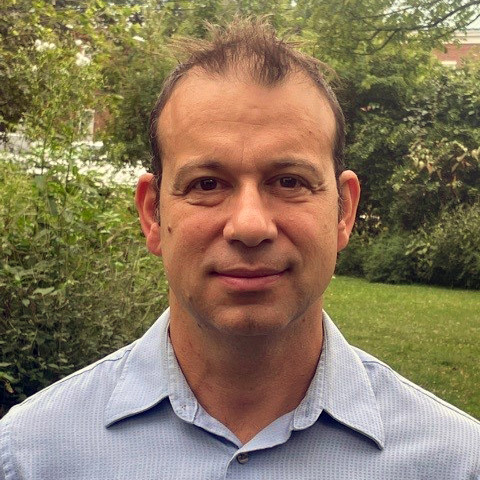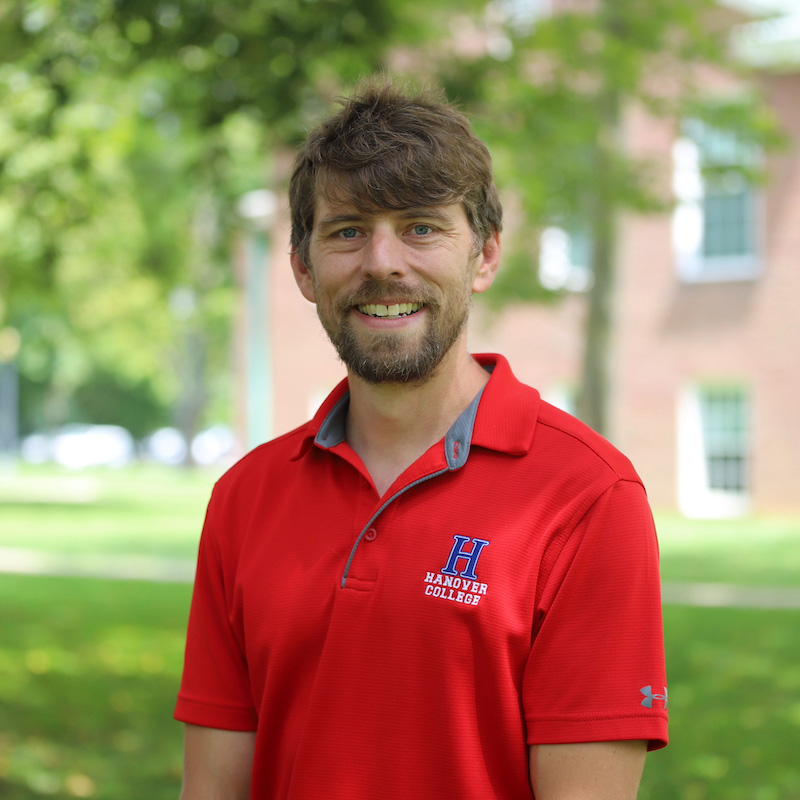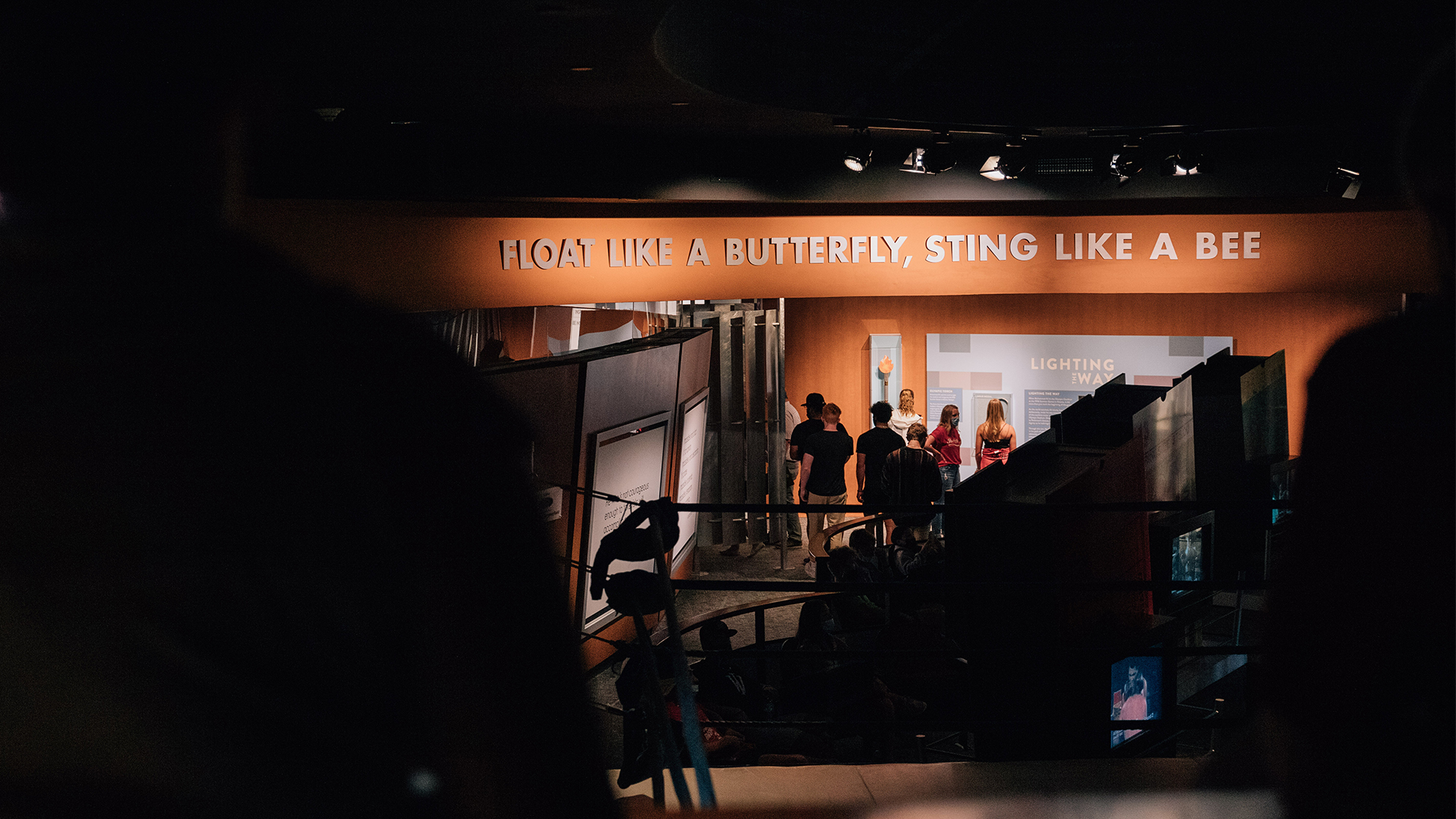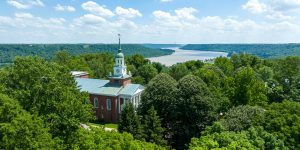Academics at Hanover:
Physics is a quest for understanding the principles that govern vastly diverse phenomena, from subatomic particles to our entire universe of stars and galaxies. It lies at the foundation of all natural science and supports numerous areas of engineering and technology shaping our way of life. At the Department of Physics and Astronomy, students enjoy small, rigorous classes working one-on-one with dedicated professors. Explore your interests further in Directed Studies, get involved in a research project, present your findings, study abroad, and gain work experience with local industry.
LEARNING PHYSICS AT HANOVER
The essence of our physics program at Hanover is personalized education to help students unlock their potential and achieve the best possible outcomes. Since all major classes are very small, we are able to focus on individual needs, give our students plenty of guidance, and challenge them while supporting them in their efforts in class, in seminars, in research, and in mapping out a career path. Notably:
- Most Barry Goldwater Scholars at Hanover are physics majors, despite the small size of the Department. The Barry Goldwater Scholarship is the most prestigious undergraduate award in the sciences in US. Alec Hamaker, a physics major, was our recipient in 2015.
- We strongly encourage students to engage in projects with faculty, or participate in Research Experiences for Undergraduates during the summer, or gain research/work experience through the unique cooperative education experience (co-op) program with our industry partners.
- Approximately half of our majors join top graduate programs. But we recognize that, overall, their interests and aspirations vary. We strive to convey an excitement about physics as we help students walk their own path to success.
The department offers a physics major and a physics minor as well as preparation for specializing in astronomy at the graduate level. Upon completion of the physics degree, students are ready for either post-graduate study or employment, applying their knowledge and skills to a wide variety of disciplines and vocations. They often stay in touch with us long after graduation and we take pride in their achievements.
Physics is closely related to other sciences, has profoundly influenced both human thought and way of life, and challenges our imagination about what is possible for society and the individual. A knowledge of the physical world is valuable for living with confidence and confronting important decisions in today’s complex world. Therefore, it is not necessary only for specialists. With this in mind,
- The Physics Department welcomes students who come to the discipline through other interests and wish to pursue the introductory physics courses (Phy 161 and 185) to obtain a firm foundation of key, fundamental physical concepts.
- The Astronomy courses are open to majors and non-majors alike, and are some of the most popular elective courses on campus.
- The Department places a strong emphasis on scientific methodology and the history and philosophy of science. The history of science course (Phy 226), in particular, is open to all Hanover students. It investigates the evolution and importance of scientific ideas within historical and social contexts.
“The physics program at Hanover College is like no other physics program I have seen. It combines the personal attention and relationships with faculty that one receives at a liberal arts college with the rigorous coursework and research opportunities that are available at a large research institution. The physics degree I received at Hanover has allowed me to compete with physics majors from all over the world. While at Hanover College, I had plenty of opportunities to further my career as a physicist: I was able to participate in a theoretical research project with my faculty advisor, engage in an experimental research project in an REU program (Research Experience for Undergraduates) at the University of Notre Dame, publish an article in the International Journal of Mass Spectrometry, and receive a Barry M. Goldwater Scholarship, the most prestigious undergraduate award given in the sciences. I also received the necessary attention to create competitive graduate school applications which led to my acceptance at five graduate schools. The Hanover College physics department has prepared me to succeed in whatever career path I choose.”
Alec Hamaker ’15
WHAT DO PHYSICS MAJORS STUDY?
Available courses cover the following areas:
- Classical Mechanics
- Electromagnetism
- Optics
- Modern Physics
- Quantum Mechanics
- Thermal Physics
- Advanced Laboratory
- Astronomy
- History of Science
Starting in 2017-2018 the following additional courses will be offered:
- Circuits and Electronics
- Solid Mechanics
- Fluid Mechanics
“My experience in the physics department has been valuable. Classes were taught by outstanding faculty and the curriculum was very competitive. What I liked the most was the encouragement and support from the department in pursuing areas of personal research in addition to regular course work. I received the proper guidance that I needed as an undergrad and help in finding an internship at a prestigious institution. All in all, I’m very happy with my decision to study physics at Hanover College and recommend the same to prospective physics students.”
Shasta Shakya ’07
RESOURCES
Two well-equipped laboratories are available to students and faculty. They are used mostly for experiments in mechanics and electromagnetism as well as demonstrations. A third laboratory facility is dedicated to optics and advanced laboratory exercises. Students have access to a construction workshop for hands-on projects. The department also owns a 3-D printer and an atomic-force microscope.
Hanover also hosts two observatories for students and the community. The larger of the two observatory buildings was built in 1992. It contains a classroom seating for 16 and a telescope that contains a 7.5″ refracting telescope acquired by the College in 1887. It is currently used for astronomical viewing of celestial objects by students in College astronomy classes, and by visitors who are on campus for special days like Family Day, Legacy Day, Alumni Day and Homecoming. It is equipped with a small camera, and filters allowing safe viewing of the sun. The smaller observatory is used by faculty and students to do astronomical research. It houses a 16″ Schmidt-Cassegrain reflecting telescope and allows detailed photometric, spectroscopic and photographic investigation of astronomical objects. The instrument is currently used to do photometric investigation of variable stars and asteroids.
Started in 2017, the College has greatly enhanced its facilities and laboratories through the new engineering program. These resources are be available to both physics and engineering students.
BEYOND THE CLASSROOM
The Physics Department offers paid employment to all its majors as tutors or lab assistants, so you can develop special teaching and laboratory skills associated with your career plans.
You will have opportunities to conduct research alongside your professors. In experimental projects you may take advantage of the physics and engineering facilities. You can present your research work on campus and in professional conferences.
Physics students regularly intern during the summer at various research colleges or universities. Majors also have been funded to:
- Travel to Brazil and study at Los Alamos National Laboratory
- Conduct biophysical research at the Medical College of Wisconsin
- Study radio astronomy at Green Bank National Radio Observatory
- Conduct frontier research at Caltech to detecting gravitational waves
Hanover College industry partners offer a unique opportunity to qualified physics majors to acquire work and research experience through a four-month co-op.
Some recent student research projects include:
A. Hamaker, Experimental investigation of the repelling force from RF carpets. REU at the University of Notre Dame, 2015.
A. Hamaker, Lyapunov’s direct method for non-strict minima (Manuscript in progress), 2014.
Y. Ai, Z. Wu, Wave propagation in crystal lattices and N coupled harmonic oscillators (Manuscript in progress), 2014.
Some student publications include:
A. Hamaker, M. Brodeur, J. Kelly, J. Long, C. Nicoloff, S. Ryan, B. Schultz, P. Schury, and M. Wada, Experimental investigation of the repelling force from RF carpets, Int. J. Mass Spectrom. 404 (2016), 14, doi: 10.1016/j.ijms.2016.04.004
L. Pantelidis and A. Poudel, On the invariance of quantum wave packets (to be submitted to the American Journal of Physics).
CAREER OPPORTUNITIES IN PHYSICS
Physics interfaces with or influences virtually all natural and formal sciences, assists their development, and leads to deeply transformative technological breakthroughs: from electromagnetism to wireless communications, from quantum mechanics to computers, from atomic physics to sustainable energy solutions and medicine, from nuclear physics to power production, from mechanics to aerodynamics and space exploration – the list is endless.
Today, studies in physics are rigorously pursued and careers are spurred because the problems in this field are both fascinating and intensely relevant to everyday life and global socioeconomic development. But physicists are hired not only for their expertise but also for their strong analytical and problem-solving skills, which make them versatile and capable of adapting in diverse lines of work.
Physicists can be found working in industry, in national laboratories, on college and university campuses, in the astronaut corps, with consulting companies, with newspapers and magazines, in government, in healthcare, and in financial services. In particular, a bachelor’s degree in physics is a great foundation, through immediate employment or graduate school, for careers in:
- Physics Research
- Education
- Astronomy
- Geosciences
- Environmental Science
- Engineering and Technology
- Computer Science and Information Systems
- Healthcare and Biomedical Sciences
- Business and Finance
- Journalism
- Law
Overall, physics is a challenging field but it has a particularly high employment rate and physicists can expect, on average, salaries similar to those of computer science and engineering majors.
For additional information, we encourage you to visit:
What can you do with a physics degree?
Physics careers
Physics career statistics
Who’s hiring physics majors?
“At Hanover College, one can combine the traditional liberal arts education with a solid, hardcore science education and the flexible course schedule allows students to pursue a double major/minor. My time at the Physics Department, in particular, has been a fantastic adventure. The most amazing part would be that everybody gets great attention from the professors and most likely, everyone would get some research opportunities early on during their undergraduate years. Further, the super friendly environment here helped me develop strong communication skills, and since then, I got the confidence to study and work with people from everywhere. During my time at Hanover, I worked on a theoretical research project with my faculty advisor and presented at the Undergraduate Research Conference at Butler University. Then, I secured a great summer internship at the University of Tübingen in Germany where I did research on computational physics. I completed a double major in Physics and Chemistry and a minor in Computer Science and I even got a chance to join a great fraternity and also studied at Turkey for a semester. Now I am continuing my studies as a graduate student in computational materials science in a prestigious institution. Overall, the Physics Program at Hanover prepared me to excel in my professional pursuits. In particular, as an international student myself, I would strongly recommend it to all prospective international students.”
Yuding Ai ’15
PLACEMENTS
Previous graduates’ career and professional placements have included:
- Systems Analyst, Lexmark Corporation (Kentucky)
- Nuclear Engineer, BWX Technologies, Inc. (Virginia)
- Astronomer, Cerro Tololo Observatory (Chile)
- Physics Teacher, Plainfield Community School Corporation (Indiana)
- Department Chair: Atmospheric Sciences, University of Chicago (Illinois)
- Manager of Information Technology, Eli Lilly (Indiana)
- Environmental Engineer, Woodward-Clyde Corporation (California)
- Mechanical Engineer, AIDA-America (Ohio)
Graduate school placements have included:
- Arizona State University (Optical Engineering)
- Ball State University
- Brown University
- Georgia Institute of Technology
- Indiana University (School of Dentistry)
- Indiana University (School of Medicine)
- Medical College of Ohio
- Michigan State University (Nuclear Physics)
- Notre Dame University
- Pennsylvania State University
- Purdue University
- Rutgers University
- University of California-San Diego (Biological Sciences)
- University of Cincinnati School of Medicine
- University of Colorado (Astrophysics)
- University of Connecticut
- University of Illinois (Astronomy)
- University of Maryland
- University of Miami
- University of North Carolina (Astronomy)
- University of Pennsylvania (Materials Engineering)
- University of Washington, St. Louis (Mathematical Finance)
- University of Wisconsin, Madison (Condensed Matter Physics, Astronomy)
- Vanderbilt University (Nanomechanics)
- Wright State University (Fluid Dynamics)
“The time I spent at Hanover College as a student in the physics department (1989-1993) was a great experience for me. My professors encouraged me to question authority and dogma so that I could advance in my studies and become an independent thinker. This allowed me to pursue research experiences as an undergraduate that I may otherwise not have had. In addition, the courses I completed allowed me to compete and set myself apart from my colleagues in graduate school as I earned my doctorate in astronomy and astrophysics.”
Dr. Sean Points ’93






